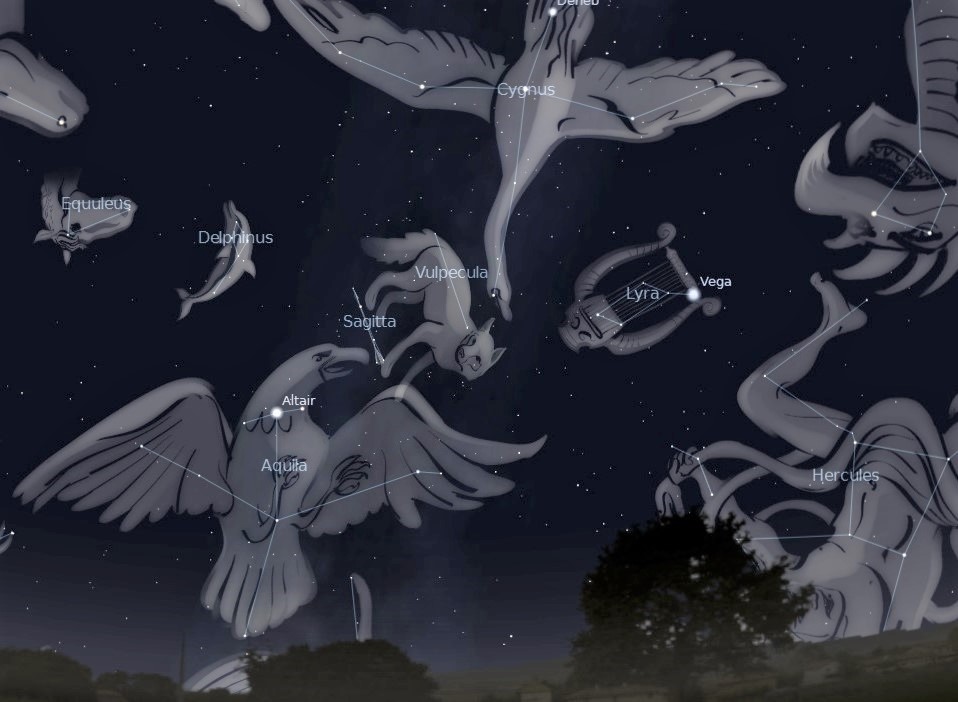This Week’s Sky at a Glance, 2022 November 19 – 26 ~by Curt Nason
Like Nate the pirate in the Overboard comics, some people do not want to let go of summer. I usually don’t succumb to the cold right away, waiting for -10 C before my winter coat gets worn regularly. But you have to accept the inevitable, so around 8:30 pm this week don your coat and imagination to say goodbye to the summer constellations as they sink below the western horizon.
The first thing you might notice is the Summer Triangle, balanced on Altair and tipping to the right. Aquila the Eagle, with Altair at its head, is flapping furiously and futilely to stay above ground, a battle it will lose over two hours. To its right, Hercules is diving head first, hopefully into a lake. Between them, if you are in the country, you might see the haze of the Milky Way spilling over the ground, perhaps to become frost. Four smaller constellations form a line above Altair, highlighted by Lyra to the right with its brilliant star Vega. Foxy Vulpecula, Sagitta the Arrow and eye-catching Delphinus the Dolphin are balanced across the eagle’s wingspan. While you are at it, try for the triangular head of Equuleus the Little Horse, who leads his big brother Pegasus by a nose.
This Week in the Solar System
Saturday’s sunrise in Moncton is at 7:25 am and sunset will occur at 4:43 pm, giving 9 hours, 18 minutes of daylight (7:28 am and 4:50 pm in Saint John). Next Saturday the Sun will rise at 7:34 am and set at 4:37 pm, giving 9 hours, 3 minutes of daylight (7:37 am and 4:45 pm in Saint John).
The Moon is new on Wednesday, allowing for several moonless evenings of deep-sky observing. Saturn is seen best in early evening, and Mars is now rising in twilight between the horns of Taurus. On Sunday evening binocular and telescope users can watch the giant moon Ganymede disappear into Jupiter’s shadow at 6:21 and reappear from the shadow at 9:04. Jupiter is stationary on Thursday, after which it resumes eastward motion against the stars. A brief outburst of meteors from the Leonid shower might occur around 2 am this Saturday.
On Sunday evening at 8 pm, tune in to the Sunday Night Astronomy Show via the Facebook page or YouTube channel of Astronomy by the Bay.
Questions? Contact Curt Nason.

